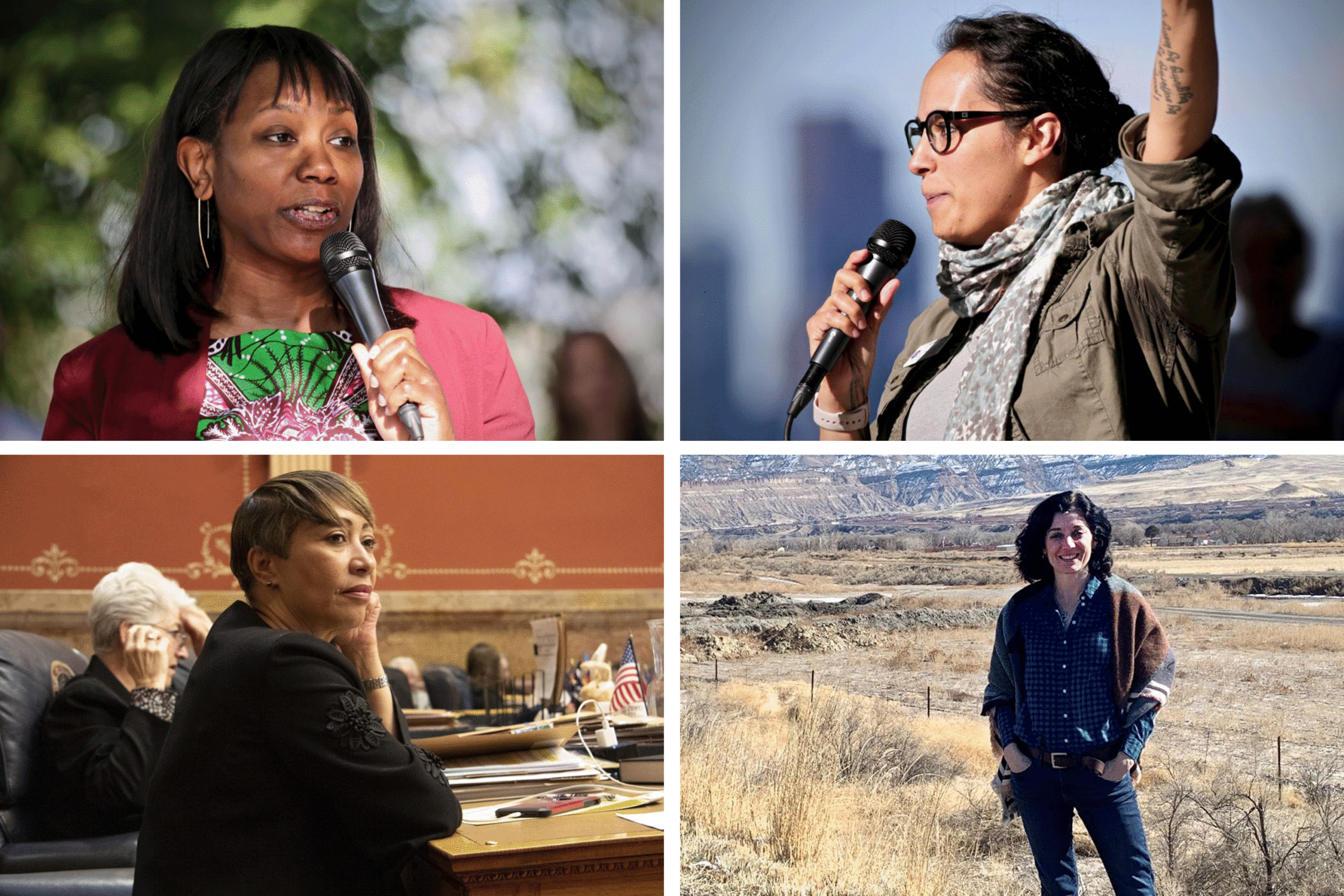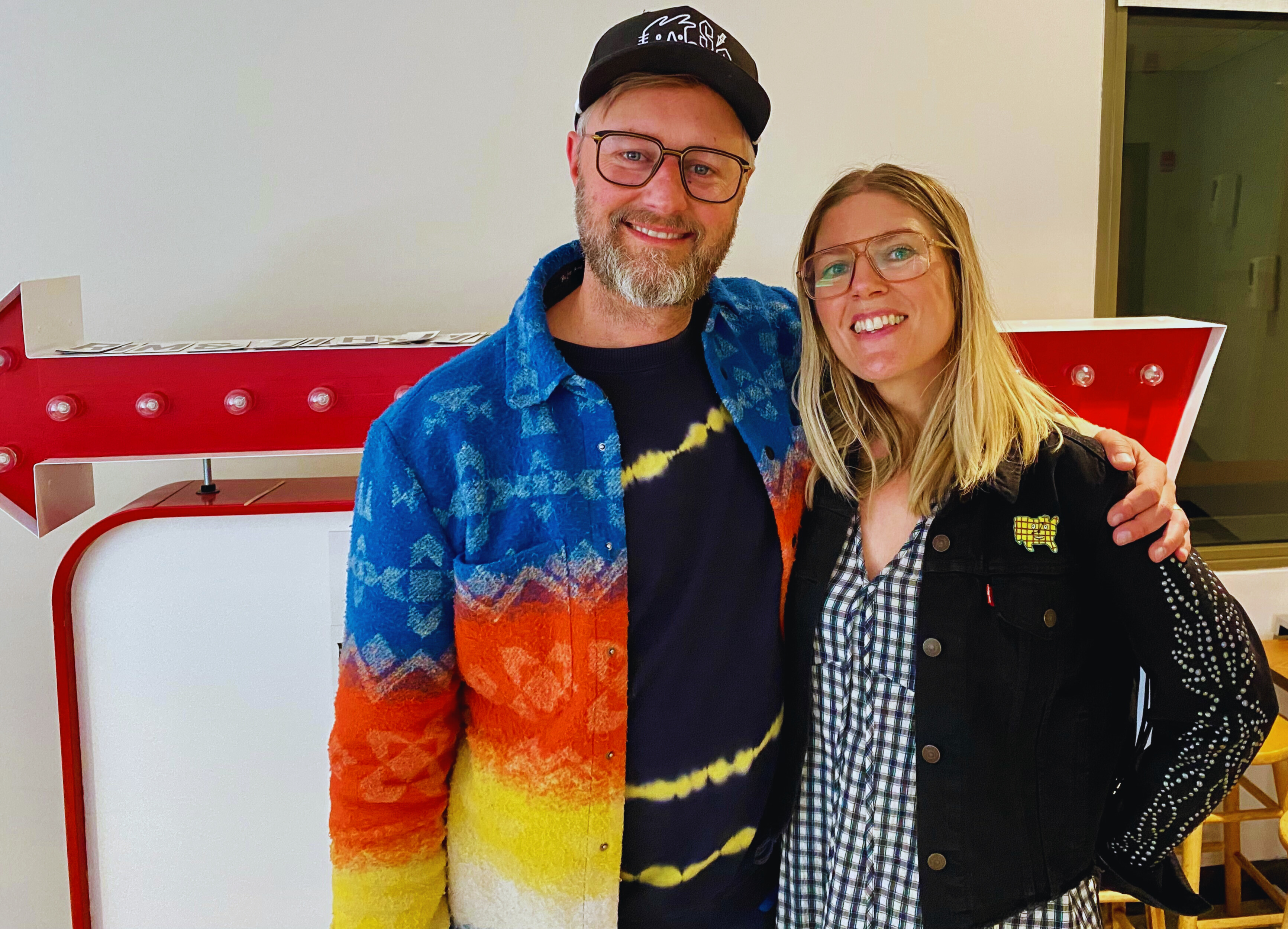
Updated 8:30 p.m.
The gender and race of Colorado’s next United States senator are already determined even before ballots in the primaries are counted, and months ahead of the general election.
Democrats will choose between John Hickenlooper or Andrew Romanoff to square off against Republican incumbent Cory Gardner — all of whom are white men.
In August 2019, six of the women who had entered the Democratic senatorial primary race in Colorado sent a letter to the Democratic Senatorial Campaign Committee, accusing the DSCC of trying to stage a “coronation” with an early endorsement of John Hickenlooper.
Later, all of the female candidates who signed that letter — Stephany Rose Spaulding, Lorena Garcia, Michelle Ferrigno Warren, Alice Madden, Diana Bray and state Sen. Angela Williams — either dropped out of the race or failed to gather enough signatures to make the ballot, leaving voters to choose among three white men. An additional female candidate running at the time, Trish Zornio, did not sign the letter to the DSCC but also later dropped out of the race.
This outcome dismayed several of the female candidates who were running.
“I believe the people of Colorado do want change,” Williams said. “That's why we all ran. It's time for a different voice.”
Williams, Spaulding, Garcia and Warren appeared on Colorado Matters on Thursday. Together, they described a national and state-level Democratic political establishment that favors white male candidates and lessens the candidacies of women, especially women of color.
“The machine does not want anyone running or anyone winning who's going to stir the pot, who's going to push them to be better,” Garcia said, describing the party establishment’s preferred candidate as “white male, graying hair.”
“The machine wants to maintain the status quo,” she said. “When you have these amazing [female] candidates that not only change what the face of that seat looks like, but also changes the way that seat would even operate, it freaks them out.”
Garcia says the entire political process is tainted.
“Electability right now has been very much poisoned.”
Williams says the national Democratic Party establishment favored former Gov. John Hickenlooper even before he officially entered the race in August 2019.
“It was the party Democratic Party in Washington that chose John Hickenlooper as the person they were going to endorse,” Williams said. “When that occurred, it just put a kibosh on fundraising.”
Spaulding says her experience running for Congress in Colorado Springs in 2018 helped prepare her to stand up to local party forces during her Senate campaign.
“We have people, part of the party, who just had no expectation or idea that you would have an African American woman in a predominantly white area even think that she could win,” Spaulding said. “We did a lot of transforming minds in our district ... What we learned running in that race is that if people [in the party] don't see you, [they] will not hear you, they will not respect your communities, they will not champion the work that has to be done.”
Fights with the party establishment were only one challenge, the candidates said. They say it was also almost impossible to get the media to cover their campaigns.
Warren says she confronted a reporter she met after a voter forum.
“I said, ‘I've got things to say. You literally never write about me or any of the other women. We’re here and you need to represent us.’ I think he was so shocked that I would challenge him,” she said. “It was just that constant need to challenge the system, not just the system of the party, but the system of the media.”
Williams says media bias favors candidates with name recognition.
“While we were campaigning, what we also found occurred is that usually the press would not even show up unless former Gov. Hickenlooper was there,” Williams said. “It was like they were following him, but not paying any attention to any of the other candidates.”
Garcia says when the media does decide to cover female candidates, the language used can color voters’ impressions.
“When we are mentioned, we're mentioned as ‘lesser known’ or ‘newcomer,’” she said. “We're put into these boxes that already challenge our electability instead of actually presenting us as candidates.”
Some voters echo the former candidates’ frustrations with only white men rising to the top of the senate race ticket, especially when the country and Colorado are experiencing a reckoning over racial injustice and inequality.
“Who is energized right now about these men? Who?” said Katherine Newell, a 31-year-old unaffiliated voter who used to be registered as a Democrat, referring to Hickenlooper, Romanoff and Gardner.
“I want to meet a young person of color who's, like, ‘Can't wait to cast my ballot for these old white guys, again,’” Newell said. “People are doing it because they're settling. And that's the sadness about America.”
Romanoff has acknowledged his and fellow candidates’ places on the ballot may not have been entirely earned.
"We wouldn't be here, John and Cory and I, if not for the privilege we hold,” Romanoff said in the last Democratic debate before the primary. “We ought to recognize that the three finalists for the U.S. Senate all happened to be white men. It's no accident. It's in part because of America's original and persistent sin, the sin of racial injustice."
Spaulding dismisses Romanoff’s admission.
“It is insufficient for someone to recognize after the fact, when all of the women are out of the race, that white privilege exists,” she said. “So if Romanoff is genuinely progressive and aware of that, his work should have begun while we were in the race. He should have articulated that and, like many accomplices, moved out the way. That's one thing that needs to happen with white men: move out the way.”
Williams holds out hope that the system can be changed.
“The Democratic machine in Washington and in our state needs to realize that the more diverse voices and representation we have, we are a better state and we're a better country.”
Editor’s Note: This article has been updated to reflect that the six female candidates originally mentioned in the story all signed a letter sent to the DSCC. There was an additional female candidate, Trish Zornio, who was still in the race at the time that the letter was sent, but had not signed it.









